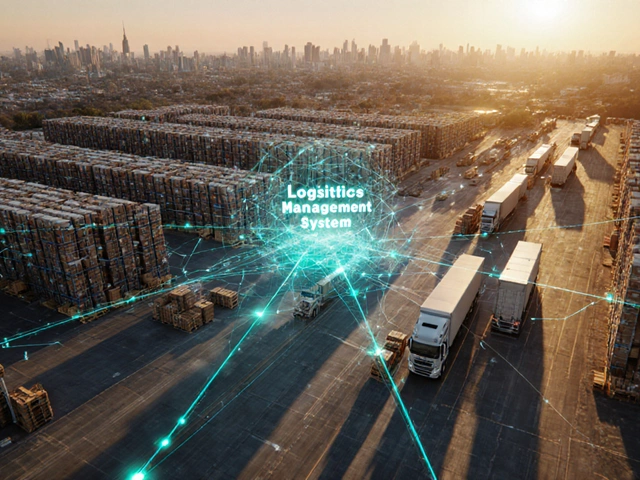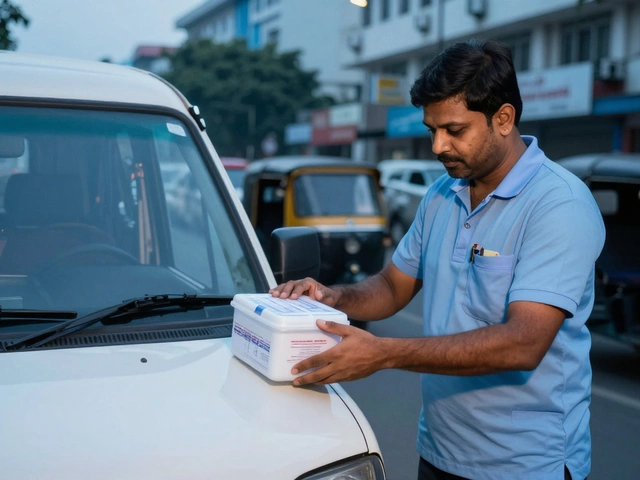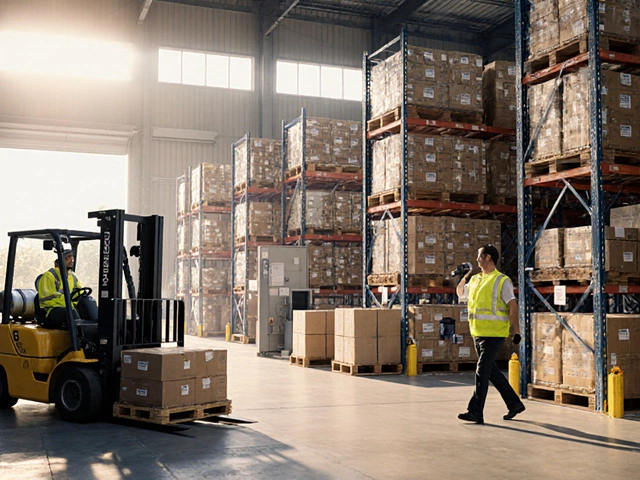Picture this: Your new TV is somehow delivered to your front porch on time, despite crossing oceans, winding through customs, and navigating your city’s traffic. That’s logistics—not quite magic, but close. Behind every shipped package, stocked supermarket shelf, and delivered online order, there’s a team orchestrating chaos and making sure the right stuff gets to the right place at the right time. The field is exploding right now, with everyone wanting fast shipping and steady supply. But what should you study if you want to jump into this world and actually run the show?
Why Logistics Degrees Matter More Than Ever
Logistics isn’t just about trucks, warehouses, and barcodes. It’s strategy, numbers, and problem-solving on a global scale. Thanks to e-commerce booms (yep, that “next-day delivery” obsession), the demand for professionals who actually get how all the moving pieces fit together is at an all-time high. Between 2020 and 2030, the U.S. Bureau of Labor Statistics projected that jobs for logisticians would grow about 30% faster than average for all occupations. Everywhere you look, companies are scrambling for people who can keep their supply chains smooth—think Amazon, hospitals, even food delivery startups. But companies don’t just want someone who can drive a forklift. They want thinkers. People who see logistics as a living puzzle—an endless Rubik’s Cube.
So, where do you learn to do that? That’s what a logistics degree is built for. You’ll study how products move, how to troubleshoot disruptions (remember recent chip shortages?), and how to save money at every turn. This knowledge is currency. It’s why big retailers, manufacturers, and even consulting firms offer six-figure salaries to logistics-savvy managers and analysts. Sounds good, right? There’s one catch: there isn’t a single path. Some go for straight-up logistics degrees. Others lean into business or engineering. Which makes you wonder—what’s the best degree if you want to crack into logistics?
The Best Degrees for a Career in Logistics
If you want to earn credibility—and a serious paycheck—in logistics, you need more than street smarts or warehouse experience. Here are the top degree picks and what they actually cover:
- Logistics and Supply Chain Management: No big surprise—this major is built for people who want to live and breathe logistics. You’ll dig into inventory management, transportation planning, procurement, operations, and tech systems like SAP or Oracle. These programs often include internships, which can turn into full-time gigs.
- Business Administration (with Logistics Focus): This is a classic for a reason. A business degree with an emphasis in logistics gives you the broad background—finance, leadership, marketing—plus the nitty-gritty of supply chain operations.
- Industrial Engineering: Maybe you like solving problems with numbers and systems. Industrial engineering degrees focus on making things better, faster, and cheaper. Graduates are often recruited to streamline factories, warehouses, and transport networks.
- Transportation and Logistics Management: These programs dive deep into the nuts and bolts of getting goods from point A to B and everything that can go wrong along the way. Expect a heavy dose of regulations, safety standards, and technology.
- International Business: If you’re keen on cross-border trade, customs, and working for global brands, international business pairs well with logistics electives or a minor.
Curious about career prospects for these degrees? Here’s a quick reference to median annual salaries and growth, based on fresh 2024 data:
| Degree | Typical Entry-Level Role | Median Salary (USD) | Projected Growth (2020-2030) |
|---|---|---|---|
| Logistics/Supply Chain | Logistics Coordinator | $65,000 | 30% |
| Business Administration | Operations Analyst | $63,000 | 8% |
| Industrial Engineering | Process Engineer | $90,000 | 12% |
| Transportation Mgmt | Transportation Planner | $74,000 | 15% |
| International Business | Import/Export Specialist | $71,000 | 10% |
The sweetest part? Almost every industry needs these skills. One friend of mine got her degree in supply chain management and ended up handling light fixtures for music festivals. Another juggles food deliveries for a big hospital chain. You’re not boxed in.

Skills and Certifications: What Sets You Apart
Let’s be honest—sometimes your degree is just your ticket to get in the door. What separates a good logistics pro from a great one are the skills and extra certifications you tack on. Here’s what recruiters really pay attention to, beyond that logistics degree:
- Problem-Solving: Stuff gets stuck, lost, or delayed—sometimes every day. Can you unravel the mess and find a fix fast?
- Tech Savvy: Everything runs on data now. Knowing how to use Excel, SQL, big software platforms, and even logistics apps shows you’re ready for the future.
- Communication: You need to explain hiccups and wins in plain language, whether you’re talking to the truck driver, the warehouse manager, or the big boss.
- Detail-Obsessed: One little typo on a customs form can mean two weeks lost at the border. You have to be sharp.
- Certifications: The best-known are APICS Certified Supply Chain Professional (CSCP), Certified in Logistics, Transportation and Distribution (CLTD), and Six Sigma certifications. These look amazing on a resume and sometimes boost pay by 10-15%.
- Foreign Language Skills: International logistics loves people who can work in Spanish, Mandarin, or German.
Here’s a tip from someone who’s chatted with dozens of hiring managers at logistics expos: Show off your real-world experience, not just your GPA. They love internship stories, side hustles, or volunteer gigs where you kept things running on schedule. Even if you optimized snack runs at summer camp, tell it as a supply chain win.
Tips to Choose the Right Logistics Program
Not all logistics degrees are made equal. Some schools have deep connections with Fortune 500 companies. Others are small, tech-heavy programs, or offer night classes for working students. And more and more, you can even study logistics online—handy if you’re trying to pick up new skills while working or walking your dog (trust me, Luna never cares if I’m watching lectures with earbuds in).
Before you pick a program, here’s what to look for:
- Industry Connections: Does the program offer internships, job fairs, or alumni mentors? That’s where most people score their first job.
- Faculty Experience: Are your professors seasoned in logistics or just reading slides? See if they’ve worked with real companies.
- Technology Offered: Do you get hands-on with software and warehouse tech, or just old-school lectures?
- Flexibility: Can you take classes part-time or online if you need to juggle work and life?
- Accreditation: Make sure the degree is from an accredited institution—otherwise, you might have trouble getting your resume taken seriously.
Need more data? In a 2024 survey by the Council of Supply Chain Management Professionals, 71% of new grads with a logistics degree received job offers within three months of graduation—compared to 52% of general business majors. The lesson: a focused program pays off fast.
Many universities now offer dual degrees, such as Logistics + Information Technology. These hybrid programs are gold for employers because data and automation are transforming the industry almost as quickly as demand is rising for quicker, greener shipping.

Careers in Logistics: Where These Degrees Take You
A logistics degree isn’t a golden ticket that locks you into one job. This industry is massive, and you could be doing anything from planning air shipments in a skyscraper office, to streamlining warehouse robots, to negotiating contracts with shipping giant Maersk. Here’s just a taste of where your degree might take you:
- Logistics Coordinator/Manager: You plan, track, and tweak every step in the journey from factory to customer. If there’s a delay—you’re the fixer.
- Supply Chain Analyst: Dive into the data, turning spreadsheets into lower costs, faster deliveries, or fewer bottlenecks.
- Procurement Specialist: You handle the buying, making sure goods and parts arrive on time and at the best price.
- Transportation Planner: Map out the best routes, modes, and schedules for moving freight across the globe.
- Operations Manager: Oversee teams, processes, and gear—sometimes for the biggest brands and warehouses you can imagine.
- Inventory Control Manager: Keep stock levels just right so companies avoid out-of-stock nightmares or useless surpluses.
And jobs in logistics rarely stand still. You could end up working for a popular sneaker brand, a humanitarian nonprofit, or a high-flying tech startup racing toward same-day delivery. Or maybe you’ll become a consultant, advising companies all over.
There’s one more bonus: It’s normal for logistics pros to hop between industries every few years, thanks to their in-demand experience. This helps you build up new skills—and makes sure you’re never bored. One week you’re handling electronics; the next, you’re behind the scenes at a giant music tour. Not to mention the growth: the need for logistics pros outpaces fresh grads, which is why experienced logistics managers see regular raises and quick promotions.





